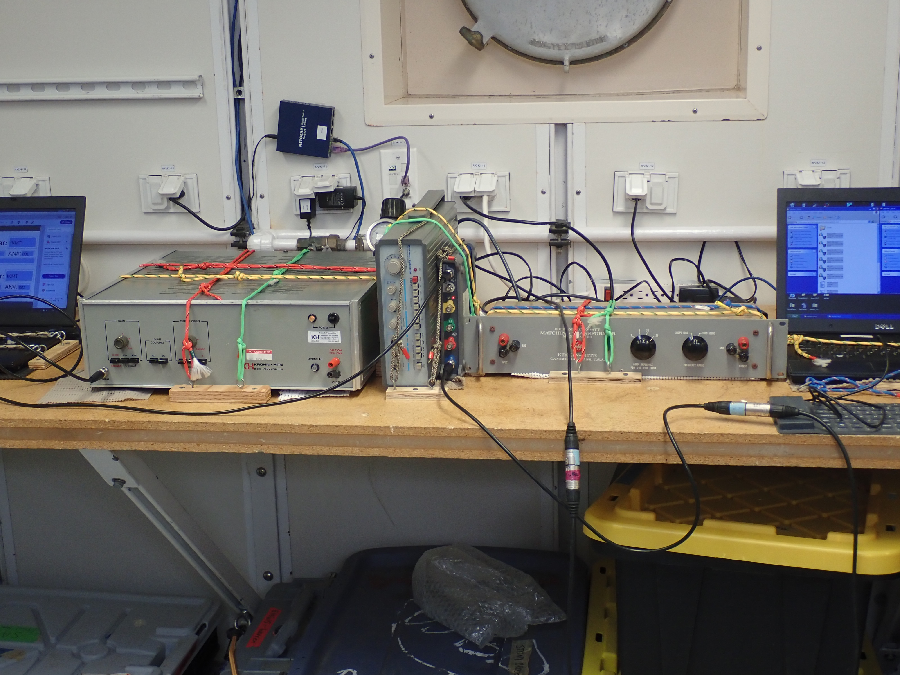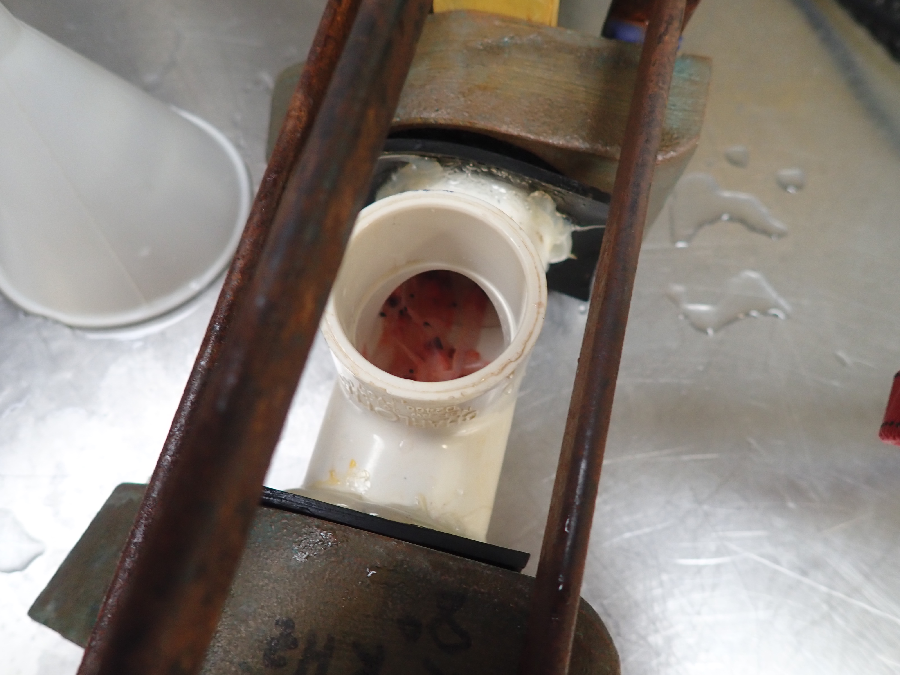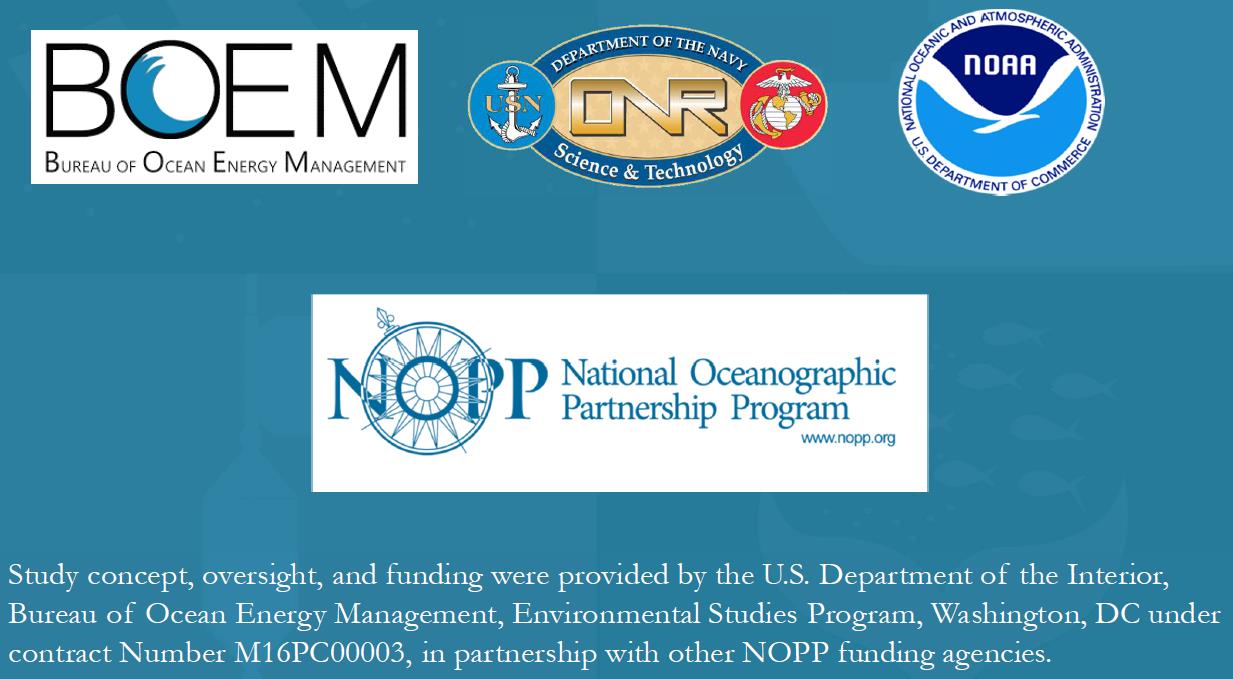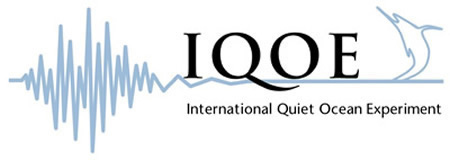Dec 11, 2020 Running Sound Speed Experiments by Brandyn Lucca, Stony Brook University
Howdy! My name is Brandyn Lucca, and I am a graduate student at Stony Brook University. This will be my fifth ADEON cruise, and third aboard the R/V Neil Armstrong, studying how underwater sound bounces and scatters off of individual critters in the ocean. This involves everything from running experiments aboard the boat, measuring the acoustic signature of animals in an aquarium, to simply taking photos of each specimen we catch to collect information on body length and shape.
One of these experiments includes measuring how fast sound travels through the body of certain animals (Fig 1). The amount of sound that scatters from an animal is related, in part, to the difference in sound speed between their bodies and the surrounding seawater – the bigger the difference, the larger the echo. This is why air bubbles, which have a sound speed roughly four times slower than seawater, make such large echoes. So for animals like shrimp, I place them in a chamber between two pieces of equipment called transducers, where one will transmit a sound and the other will receive it. I then compare how long it takes the sound wave to travel through the animals to how long it took to travel through with a chamber filled with just seawater (no animals).




